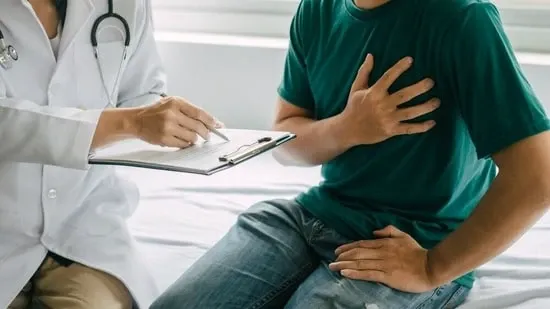Cardiologist explains ‘secret pocket in heart where most stroke causing clots are born’: Your heart has a tiny pouch
admin | August 9, 2025 9:22 PM CST

Dr Dmitry Yaranov, a cardiologist, known as 'Heart Transplant Doc' on Instagram, took to the platform on August 7 to discuss the left atrial appendage (LAA), a small, ear-shaped pouch connected to the left atrium of the heart.
While it may seem like a small, insignificant structure, the LAA plays a role in cardiac function and has clinical implications, the cardiologist explained.
'Where 90% of clots that cause strokes are born'
He said, "Why plug the pouch in your heart? Let's talk about the Watchman. Your heart has a tiny pouch called the left atrial appendage - kind of like a little pocket off the left atrium. And if you have atrial fibrillation, that pouch is where > 90 percent of clots that cause strokes are born."
How the Watchman device works
Dr Yaranov shared that the Watchman device is a minimally invasive solution that closes the left atrial appendage, reducing the risk of stroke in people with atrial fibrillation (AFib). By sealing the LAA shut, the device prevents blood clots from forming and breaking loose, which can travel to the brain and cause a stroke.
He said, "So the logic is simple: if we close the pouch… we block the stroke. That's what the Watchman device does. It's a small umbrella-like implant that goes into that pocket and seals it shut - permanently. No more pouch. No more place for clots to hide. And for many people, that means no more lifelong blood thinners."
He added, "Who is it for? Patients with AFib. High stroke risk. Trouble with blood thinners (like GI bleeds or falls). It's not for everyone - but when it works, it's a game changer." Dr Yaranov also said, "This is stroke prevention 2.0. Not just thinning the blood, but sealing off the source."
According to the World Health Organization (WHO), heart attacks and strokes are usually acute events mainly caused by a blockage that prevents blood from flowing to the heart or brain. Click here to now more about the common symptoms of heart attack and stroke you need to know.
READ NEXT
-
Bigg Boss 19: Pahalgam attack victim’s wife in talks to join

-
India's England Tour Schedule Announced: 5 T20Is & 3 ODIs Confirmed - Check Dates

-
Why Gen Z Will Dominate The Workforce — And How Leaders Should Prepare

-
Indian Startups See 57% Funding Surge: $205M Invested In E-commerce, Fintech, And AI

-
Middle East, US, And Africa Could Fill India’s Oil Gap — But Not Cheaply
